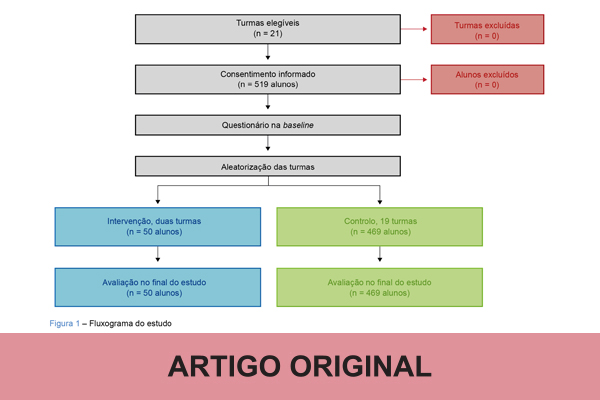SOCIAL MEDIA
Portuguese Medical Association's Scientific Journal

Introduction: School-age test anxiety is an important risk factor for school performance. Notwithstanding, few studies seek to identify which strategies are effective in improving test anxiety. The aim of this study was to assess whether a cognitive-behavioural intervention for high school students could significantly reduce test anxiety.
Material and Methods: Two-arm, cluster-randomized controlled, unblinded, parallel, trial. Participants were 10th grade students from Alves Martins High School in Viseu, Portugal. Students were randomized at class level to receive a cognitive-behavioural-based intervention combined with mindfulness, psychoeducation, and relaxation techniques, or to a control group with no intervention. Participants’ anxiety levels were measured using the Test Anxiety Questionnaire. The analysis of the effect of the intervention was carried out on an intention-to-treat basis at the class level, using multilevel mixed effects models and Bayesian modelling.
Results: The intervention had a significant effect in reducing test anxiety (d = 0.81, 95% CI 0.45;1.17, Bayes factor = 31.3). Male gender was an independent risk factor for smaller reductions in anxiety levels. The intervention was more effective in reducing the worry component of test anxiety (d = 0.76, 95% CI 0.41;1.11, Bayes factor = 19.9) than the emotionality component (d = 0.63, 95% CI 0.31;0.95, Bayes factor = 6.6).
Conclusion: A cognitive-behavioural intervention specifically designed to reduce test anxiety, using a combination of mindfulness, psychoeducation and relaxation techniques, was effective in reducing test anxiety levels.
Trial Registration: Retrospectively registered on clinicaltrials.gov (NCT05481099) in 08/01/2022.